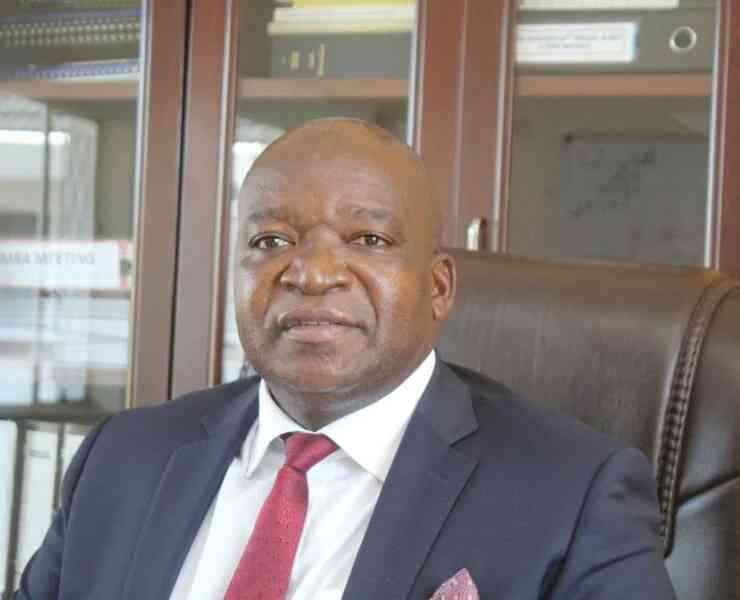
AS global platinum prices tumble due to depressed demand and geo-political tensions rocking the industry, Zimbabwe’s major producers have embarked on massive retrenchment schemes to cut costs, among other measures. Zimbabwe Independent chief reporter Tinashe Kairiza (TK) spoke to the Chamber of Mines of Zimbabwe chief executive officer Isaac Kwesu (IK, pictured) to understand how local firms are trying to ride the tide, which is now threatening the viability of the sector. Below are excerpts of the interview:
TK: How has the Russia-Ukraine conflict impacted on platinum production trends?
IK: Russia is a major producer of platinum group metals (PGMs). The unfolding crisis has resulted in production and supply chain disruptions impacting negatively on the global supply of PGMs. The outlook for PGMs production remains fragile as the geopolitical tensions have deterred investments in the affected region.
TK: How has the war affected prices?
IS: Following the Russia -Ukraine conflict, platinum prices surged temporarily, driven by concerns around PGMs supply disruptions. This is because Russia and Ukraine are major PGM producers. The situation has since reversed in the past 12 months with PGM market conditions now largely influenced by the reduced demand for catalytic converters with the automobile industry drifting towards electric vehicles. As a result, PGMs prices have been softening over the past 12 months, with the palladium price the most affected, declining by around -40%. In the outlook, the PGMs market is expected to remain predominantly subdued as the demand conditions are anticipated to remain weak.
TK: Some local players in the sector are retrenching due to these challenges. How widespread is this challenge?
IK: The softening prices for key minerals have impacted negatively on the viability of mining projects. To minimise the impact of low prices, mining companies are taking initiatives to manage the cost of production, including improving efficiencies and deferring capital projects. Companies are also ramping up production in order to compensate for revenue losses arising from low commodity prices.
These initiatives have remained insufficient to restore the viability of their operations and some mining companies are now cutting back on head count to supplement the initiatives. The industry is calling upon the government to intervene and assist in reducing costs, specifically in areas including electricity tariffs and fiscal charges to minimise mine closures and specifically to ensure that mining companies survive this difficult tide.
- Zim platinum H2 output remains stable
- Zimplats splurges US$270m on capital projects
- Africa is paying dearly for the Russian/Ukraine conflict
- Power cuts: Zesa sleeping on duty
Keep Reading
TK: What has been the impact of electricity costs on platinum mining?
IK: The softening commodity prices have coincidentally been disproportionately matched by increasing cost structures for the mining industry, largely propped up by the upward review in electricity tariffs. An analysis of cost increases show that the overall cost structure has increased by between 7% to 10% due to the 44% upward review in electricity tariff from around US0,0986/ KWh to the current US0,1421/ KWh.
TK: What are your platinum production targets for this year?
IK: Platinum output is expected at 17,8 tonnes in 2024, up from 16,8 tonnes in 2023, while palladium output is expected at 14,5 tonnes in 2024, from 14 tonnes in 2023 benefitting from ongoing expansion activities at all operating mines.
TK: How much did the sector generate in exports last year?
IK: The PGMs sector generated approximately US$1,6 billion in 2023, from around US$2,2 billion in 2022. PGMs constitute around 25% of national exports.
TK: What are the short-term plans by producers to set up a platinum refinery?
IK: Zimplats is currently constructing additional smelters as well as refurbishing its mothballed Base Metal Refinery, which will facilitate the processing of its materials in the country. PGMs producers have agreed to utilise the excess capacity to toll treat their materials at Zimplats.







